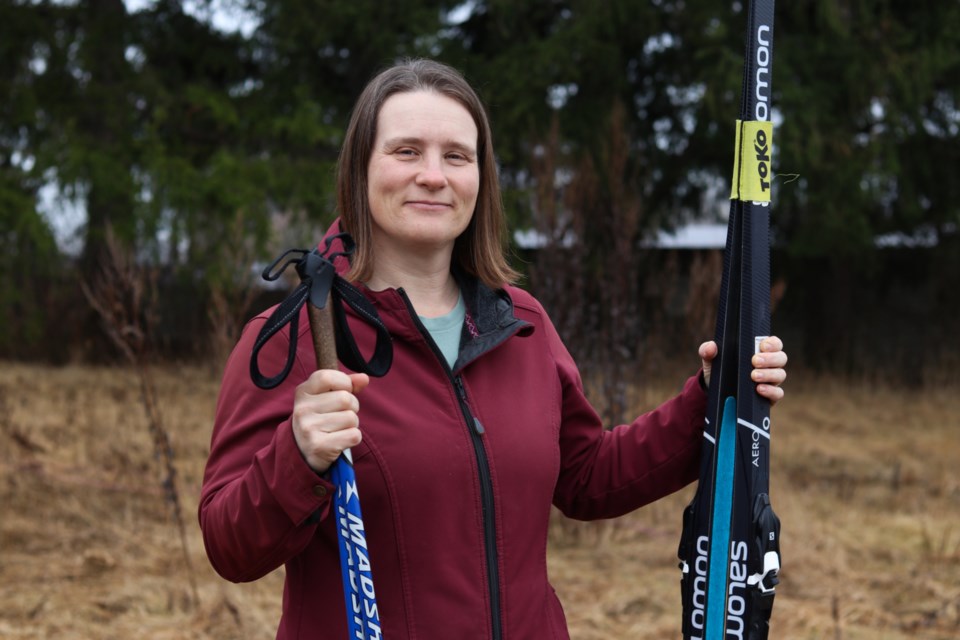Guelph just experienced one of its warmest winters ever, leaving a “disastrous” season in its wake for local cross country skiers – some say the worst one yet.
Taylor Giberson, 43, experienced plenty of snow-filled winters growing up in Guelph.
This year was far from what he remembers.
Giberson is one of two snow groomers for the Guelph Nordic Ski Club, keeping an eye on the weather, maintaining the equipment and the trails for cross country skiers.
The club, which has been around since the early 2000s, is volunteer-run and has eight kilometres of ski trails on the lands of the Ignatius Jesuit Centre.
He said they’ve groomed the trails maybe four times this year. Last year they made it out about six times, and a lot more the year prior since there was so much snow.
“It’s been a disastrous season in terms of cross country skiing. Even when we’ve got a snowfall, you kind of need a more sustained snow to build up the base and actually be able to groom (the trails),” said Guelph Nordic Ski Club member Catherine Carstairs. “It’s been terrible.”
Carstairs said if you made the most of the season, you might have been able to hit the trails five times, though she only made it out twice this year herself.
“The two first COVID winters were fantastic – we had a lot of snow. Those winters I probably went 20 times (though not always at St. Ignatius),” she said.
“It’s been the worst one yet,” said another member, Caroline Prochazka.
“We did get two good weeks, and people who were quick off the mark with their skis got out there as many times as they could,” she said. She managed to make it out about four times while the conditions were good.
“I think people were quite excited when it came and hoped that it would last,” she said. “Then unfortunately we had a big thaw. So a very, very, very short season.”
For Giberson, the last two winters have proved it hard to stay dedicated to skiing unless you’re willing to travel further north, where the conditions are a bit more predictable.
The club had even planned its first event, a Family Day loppet, for mid-February, when they assumed there would safely be enough snow. There wasn’t, and they had to cancel at the last minute.
“The idea was just to… have a family-friendly event that would introduce people to the sport. Unfortunately there simply wasn’t enough snow,” Carstairs said.
Prochazka said they plan to run the event next year, probably earlier in the season just to be safe.
Eight inches of packed snow are ideal for cross country skiing conditions to prevent skis from hitting rocks and vegetation.
Giberson said a consistent below zero temperature also helps – neither of which Guelph has had much luck with this year, with frequent thaws.
Data recorded at the Turfgrass Institute in Guelph shows only two weeks in January with more than even eight centimetres of snow on the ground, and sparse snow coverage in December and February. It also shows the temperature frequently jumping above zero during the winter months and hitting around 20 degrees Celsius in the first week of March.
The club has a dual membership system, where people have the option to pay as they go or use a 10-time pass.
Warmer weather and less snow means their revenue has gone “substantially down because people haven’t been able to ski,” Carstairs said.
“Our only revenue is from pay-as-you-go and membership fees,” Prochazka said. “We don’t have any grants or anything.”
They’re not yet sure how the loss in revenue will impact them next year, but said most of it goes to the gift they give St. Ignatius each year as a thank you for using the lands. Other expenses include grooming equipment like the snowmobile.
While Guelph has had unpredictable winters for years, Prochazka said it seems like the season is getting shorter: starting later and ending earlier.
If the winters continue to get warmer, Giberson said he could see the group having to be renamed to the Nordic Club, ditching the emphasis on skiing and insetad focusing on less weather dependent activities like walking.



.png;w=120;h=80;mode=crop)